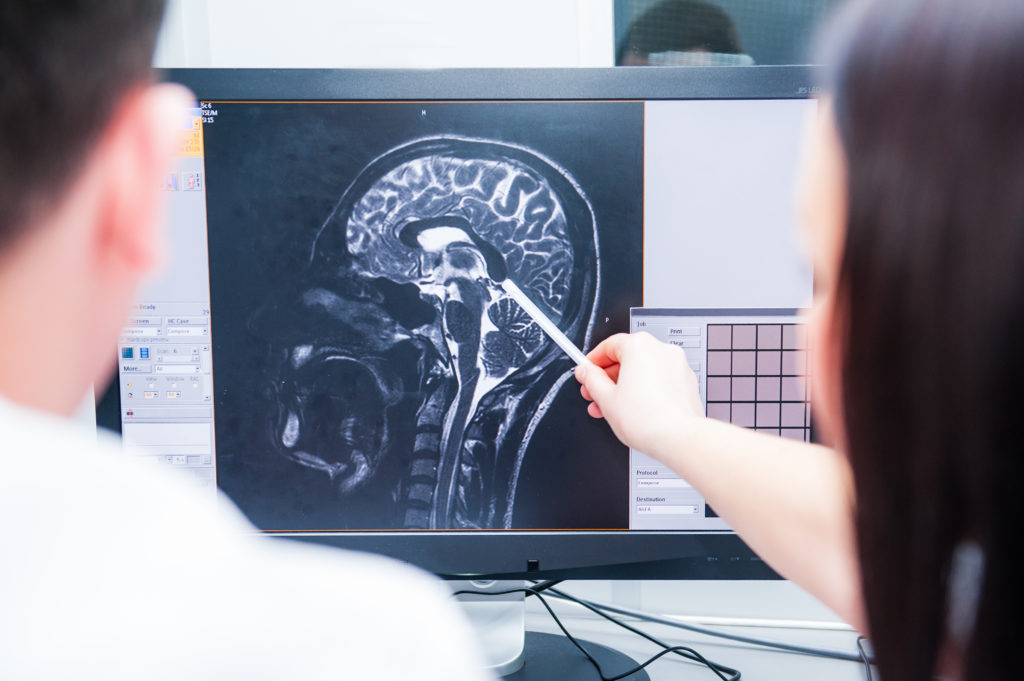
Diffusion Tensor Imaging (DTI) is a newly developed MRI-based neuroimaging technique that allows medical professionals to more accurately analyze nerve cells and the neuronal network in the brain after a person suffers head trauma. These scans can help identify damage caused by blunt force trauma and ensure that accident victims begin receiving treatment as soon as possible, while also helping provide a link between a particular accident and a specific brain injury. The latter is especially important when trying to establish the kinds of losses that a person experienced as a result of an accident-related injury. To learn more about the kinds of medical evidence you’ll need to improve your own chances of filing a successful personal injury claim, reach out to our dedicated Miami legal team today.
What is Diffusion Tensor Imaging?
Diffusion tensor imaging is an improved version of conventional MRIs that can locate cellular damage that doesn’t typically show up on standard CT scans. Unlike CT scans, for instance, which cannot show microscopic brain damage, DTI scans can measure changes in blood flow while the brain is actually in action. As a result, DTI scans can reveal obstructions and misdirections in the white matter of the brain that simply doesn’t show up on other scans that focus on the structure of the brain itself. This type of evidence can help doctors pinpoint the location of brain trauma after a head injury.
What are the Benefits of DTI Scans?
Traumatic Brain Injuries (TBIs) are often hard to diagnose because even when damaged, the brain can appear normal on conventional MRI and CT scans. DTI scans, however, are more sensitive and precise, so they can establish the location of head trauma-related brain damage even in victims that are asymptotic. This means that accident victims can obtain a diagnosis of a head injury much faster, which in turn allows them to obtain treatment more quickly. This can make all the difference in the types of health outcomes that TBI victims can expect, including whether they will suffer from long-term disability.
Besides being able to identify TBIs more speedily, DTI scans can also provide definitive proof of a head injury that might otherwise not show up on a MRI or CT scan. Before the use of DTI scans, this left many accident victims with no evidence of their injury, which in turn made it nearly impossible to recover damages after an accident. In recent years, both state and federal courts have accepted DTI scans as evidence of head trauma in personal injury cases.
Why Do I Need Medical Records for My Personal Injury Claim?
Scans and lab tests are one of the key pieces of evidence that an accident victim can use to establish the extent and nature of his or her injury. This makes it especially important for accident victims, particularly those who are suffering from head trauma, to obtain copies of these records from their medical providers. Besides scans and lab results, accident victims will also need to provide evidence of their medical bills, so they can demonstrate to a judge or jury the extent of their financial losses. It is also possible, however, for accident victims to recover damages for costs that are harder to quantify, like the physical and emotional toll that a brain injury has taken on a victim and his or her family. A person, for instance, may be unable to work in the same field because he or she is still suffering from TBI-related symptoms, or may earn significantly less. In these cases, accident victims who can prove that someone else was the cause of their injury could be entitled to damages compensating them for lost wages and benefits, as well as a reduced quality of life. Again, medical proof of the injury will play a critical role in an accident victim’s ability to recover reimbursement for these losses.
Did You Suffer an Accident-Related Head Injury?
Call 305-371-2692 to speak with one of the dedicated brain injury lawyers at Dolan Dobrinsky Rosenblum Bluestein about the kinds of evidence that you will need to file a successful personal injury case against the person responsible for causing your accident. We can help you investigate the cause of your accident, compile evidence, negotiate with insurers, and if necessary, take your case to court. To learn more about how we can help, call or send us an online message today. We are available to answer your brain injury-related legal questions 24 hours a day.